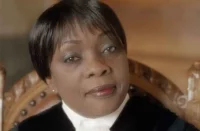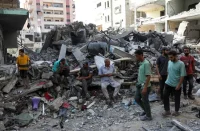Call the European Union anything you want: an organization, an association, a community, etc. But the EU is a state just like Russia, China or any other. The main difference between the EU and Russia is that the European Union is a confederation, whereas Russia is a federation. Interestingly, a confederation is a very unstable entity; it eventually either falls apart or becomes a federation.
For confirmation, consider what’s happening in the EU and its problem with Greece. Europe is facing a choice. Its countries can either shout, “Every man for himself,” and withdraw into their national burrows, or they can pull together, i.e., tighten up discipline and hold to a uniform policy superseding Germany’s economic interests.
The EU is a young state. Young people want to express themselves, show their originality and generally shock the public. That’s understandable. For the first time in Europe’s long history, which is replete with the most heinous war crimes and incredible cruelty, Europe’s nations actually managed to unite quietly and peacefully with parliamentary methods rather than at the point of Napoleon’s bayonets or under the treads of Nazi tanks. European Commission Vice-President Viviane Reding said, “The European project is not held together by military force, but by the rule of law and fundamental rights for 500 million citizens.”
It was obviously that understanding that inspired the EU’s leaders to award the Nobel Peace Prize to the organization they govern.
Thus, Council of Europe Secretary General Thorbjørn Jagland, who is also the chairman of the Norwegian Nobel Committee, recently announced that the Nobel Peace Prize for 2012 had been awarded to the European Union. According to Jagland, the EU deserves it because it has been acting in the best interests of democracy and human rights in Europe throughout the 60 years that have passed since the signing of the Treaty of Paris.
There’s just one subtle point to be made. The Nobel Peace Prize is awarded by the Norwegian Nobel Committee, which is located in the Storting (the Norwegian Parliament), and it both chooses the candidates and makes the final decision. I repeat — the chairman of the Committee is Thorbjørn Jagland, the Secretary General of the Council of Europe. It would seem that Europe has a severe personnel shortage and many of its senior leaders have to hold several jobs.
European Parliament President Martin Schulz responded to the news that the EU had been awarded the Nobel prize by saying he was “deeply moved” by the award and “honored” by the prize. The news took Schultz by complete surprise, of course.
The reaction of politicians and the international media to the Nobel Committee’s decision has been mixed. For example, Ecuador’s President Rafael Correa said the decision to award the Nobel Peace Prize to the European Union was “absurd.” He thought it ridiculous to award a Nobel Prize to that bureaucratic institution, but he said everybody knows about the power games they play at those rarefied heights.
Czech President Vaclav Klaus called the award “a tragic mistake.” He admitted, “I really thought it was a [journalistic] hoax, a joke. I couldn’t imagine even in a dream that someone could be serious about it.”
“It’s unexpected, to put it mildly,” Leonid Slutsky, Russian Peace Foundation head and PACE vice speaker, said at a recent press conference. He believes that the Nobel Committee made a “strange move” because “peacekeeping is a secondary aspect of EU activities.”
So, henceforth the EU is the most peaceable state in the world and the only one that has been awarded a Nobel Prize. And the United States is governed by the most peace-loving president on the planet.
I have to ask: If the European Union is a peace-loving organization, why are its soldiers involved in the occupation of Afghanistan? For example, ISAF Regional Command North includes military personnel from Germany, Hungary, Sweden and Norway. Regional Command West has soldiers from Italy and Spain, and Regional Command East includes troops from the Czech Republic and Poland. To a man, they are all Nobel laureates and peacekeepers. Alas, a state isn’t an abstract concept; it’s made up of its citizens, including its soldiers. Did the Norwegian Nobel Committee award the prize just to Martin Schulz?
And yet… the awarding of the Nobel Peace Prize to the European Union isn’t an insult to the world’s public, a mockery of common sense and a crazy fantasy of European bureaucrats. Consider what people are saying. NATO Secretary General Anders Fogh Rasmussen congratulated the EU on being awarded the Nobel Peace Prize for 2012 and said, “The European Union has played a vital role in healing the wounds of history and promoting peace, reconciliation and cooperation across Europe.”
At the ceremony in Oslo, Jagland said that the prize was awarded to the European Union for uniting Europe and transforming it from a “continent of war to a continent of peace.”
BBCRussian.com said, “The Nobel Peace Prize for 2012 was awarded to the European Union for six decades of efforts to consolidate peace in Europe.” It’s worthwhile spelling out what is meant by E-U-R-O-P-E. Surely, it doesn’t mean “greater” Europe, which is usually considered to stretch to the Urals and sometimes even as far as Vladivostok, but Western Europe and possibly Central Europe — but certainly not Eastern Europe. Opinions about that differ, but the EU’s attitude towards Eastern Europe hasn’t always been peaceful during the six decades of its existence. It’s difficult now to say who was more eager to drop the bombs before perestroika — NATO or the Warsaw Pact. But clearly there was something other than peace in the air.
So, as the BBC put it, a peaceful Europe has given itself an award because the nations that make it up have been able to refrain from slaughtering each other and committing mass violence for 60 whole years.
For 60 years now, the French haven’t been killing Germans with shrapnel, and the Germans haven’t poisoned the French with mustard gas. And the most interesting aspect of it all is that Great Britain hasn’t gone to war with either. However, it hasn’t been long since NATO aircraft were bombing Belgrade, albeit with a great deal of precision and solely for the sake of democracy, human rights and European unity. So should anyone think of mentioning Afghanistan, Libya, Syria, etc. as examples of European bloodlust and get indignant over another manifestation of the West’s hypocrisy, he would be wrong. The West has awarded its own prize to itself for not killing itself. Somehow, considering Europe’s history, that’s a great achievement. The Afghans, Syrians, Iraqis and others are absolutely beside the point.
But there’s one thing we shouldn’t forget.
UK Independence Party Leader Nigel Farage put it this way: “You only have to open your eyes to see the increasing violence and division within the EU… Spain is on the verge of a bailout, with senior military figures warning that the Army may have to intervene in Catalonia. In Greece people are starving and abandoning their children through desperate poverty, and never a week goes by that we don’t see riots and protests…”
Perhaps by awarding a Nobel Peace Prize to the EU its leaders are attempting to remind Europeans that the unity of their nations is what guarantees peace in Western Europe.
Source: New Eastern Outlook














The Nobel Peace Price should be abolished before it becomes an absolute object of mockery. It should become a charity institution avoiding therefore the ridiculous role it has been playing and to compromise the very prestigious international image Norway has hitherto enjoyed. It seems that we live more and more in a world of misrepresentations, we are more and more the recipients of exactly the contrary of all that should sound solid, decent and provided with a minimum of good sense.